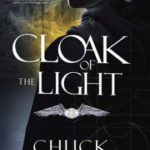Dark Is The Stain: Astrologers & Kings
O star of wonder, star of light
Week before last, Fred posted a lovely entry on the Magi, who they were, and how these astrologers alone understood the infant Jesus for who he really was and took great pains to honor his birth properly.
star with royal beauty bright
And then Stephen used these quotes:
These Dudes Aren’t Kings
Now “We Three Kings” is a wonderful Christmas song. Perhaps the Beach Boys’ version is best, if that’s not too sacrilegious to say. I’m not eager to play the spoiler here, but these dudes aren’t kings. They are pagan astrologers, not too far from what we’d call sorcerers and wizards.
Gandalf and Dumbledore are coming to worship the baby Jesus.These magi are not respected kings but pagan specialists in the supernatural, experts in astrology, magic, and divination, blatant violators of Old Testament law — and they are coming to worship Jesus.
We really should beware of having a narrower vision of who can come to Jesus than God does. We can be so prone to write off people like this, but God doesn’t. He draws. He woos. He’s seeking worshipers from among the priestly caste of pagan religion. There will be worshipers from Hogwarts, even from Slytherin.
From We Three Kings of Orient Aren’t, David Mathis, DesiringGod.org, Dec. 24, 2011 (boldface emphases added)This is astounding — that God is welcoming the magi, and not on the provision that they first abandon their life of astrology and magic. No, he comes to them where they are, in their sin. He goes as far as to exploit the very channel of their deepest idolatry to draw them to Jesus.
From That Crazy Star of Bethlehem, David Mathis, DesiringGod.org, Dec. 25, 2011
It’s this point I really wanted to settle on for a bit.
westward leading, still proceeding
Like it or not, Scripture does have that tendency of knocking our sensibilities right off their feet. A pagan seer-for-hire conversed with God and blessed Israel three times; magicians copied the first few plagues in Egypt; Joseph married the daughter of a pagan high priest; Moses married the daughter of a Moabite priest. A witch conjured the spirit of a prophet of God; and another prophet of God studied magic and astrology. Casting lots in hopes of drawing answers from God was commonplace and occasionally God used the method to rebuke at least one of his own. Pagan kings praised his name; a murderer sought God for protection; pagan seamen from who knows where begged God’s mercy as they frightfully threw a man overboard; ruthless tyrants found mercy in sackcloth and ashes.
But that’s what Christmas is all about, isn’t it? Those dwelling in deep darkness see a great light; the light pierced the darkness, and the darkness didn’t fathom it. He came to his own, but his own didn’t recognize him. Instead the most spiritually bound and oppressed people in the world felt the pull of his hand on their heart strings; the most hopelessly lost among us heard the sound of “Glory to God in the highest, and on earth, peace toward man with whom God has found favor!”
Balaam of Peor was a fool, you know. The God of gods spoke directly to him, and he kept trying to find a way to keep God at his disposal and receive his pay, too. In the NT, Simon the Sorcerer attempted the same thing, and received a sharp rebuke from the apostles – a strange mercy in its own way, and far more so than the beating the seven sons of Sceva took.
No, wisdom came in the form of a few unnamed astrologers from an undisclosed country who made a grueling journey across foreign land and conquering empire to pay homage to a foreign king foretold in foreign prophecy. Not only that, but they heard firsthand from this God they didn’t know who warned them the infant king’s life was in danger – and likely their own, too.
Four hundred years of silence, remember? Four hundred years since a prophet of God opened his mouth.
Then Gentiles crossed country, bringing gifts that themselves became a prophecy.
guide us to thy perfect light
As part of the story-telling world, I’m fascinated when the least-expected character turns out to have the most faith. One of my favorite scenes from the Harry Potter movies involves a scene in which Dumbledore sounds slightly malicious and Snape dresses him down and remains resolute in his defense of Harry. But that’s why I like Snape; he’s complicated, traitor and faithful at the same time, in his own way.
These instances aren’t so much a matter of the unexpected hero as much as the unexpected faithful. I’m a little baffled, for example, at who Scripture calls righteous. King David’s one thing, but then you have Peter calling Lot righteous, a man who was self-serving, willing to offer his daughters to be gang-raped in place of his angelic guests (the angels, take note, chose option three), and got so drunk – twice in a row – that he didn’t know he’d committed incest with both daughters.
But Peter says this about Lot: “…[H]e rescued righteous Lot, oppressed by the sensual conduct of unprincipled men (for by what he saw and heard that righteous man, while living among them, felt his righteous soul tormented day after day by their lawless deeds)…” (II Peter 2.7&8)
Scripture goes on: Naaman the Syrian, the widow in Zarephath, and the Roman centurion whom Jesus said displayed more faith than anyone in Israel.
These magicians, mind you, didn’t have someone in their lives to teach them the ways of God, or ‘be salt and light,’ or anything else. They were, for all practical purposes, the “unreached people groups.” I suppose we might be equally shocked today had our Messiah’s arrival had been heralded by random group of witchdoctors hailing from a jungle that no one even knew existed. We might even do something drastic like dressing them up as righteous kings in order to hide our humiliation.
“But when the Son of Man comes, will he find faith on the earth?”
Sometimes we forget that Jesus himself had to push against a world that said the faithful should look and behave a certain way, that they came from any particular demographic. Jesus himself had to deal with the question “What good can come from Nazareth?” But history, fiction, and the Scriptures teach us that help comes from the most unlikely sources and that the truest friend is often the one who is least expected. Fiction, as it is, is a safe place, and, again, I maintain that speculative fiction should be the safest place in the world to explore such things. What if a witch conversed with God? What if a medium heralded Christ’s return? The truth is, we don’t actually know who ‘the two prophets’ are going to be. They might be a ‘what’ rather than a ‘who.’ The first coming, we got the angel choir, shepherds, astrologers, and a hyperactive unborn child. I doubt that the second coming will be any less sensational.
There’s a part of us that has grasped much of this, but, primarily, we’ve missed something, something beyond the notion that Jesus hung out with prostitutes, drunks, and dirty IRS guys. And even beyond the idea that sometimes the dude with absolutely no Christian background gets it right, there should be this other concept:
The Spirit moves as pleases.
In other words, sometimes it’s not the church brat who sees Jesus, but the idol-worshiper, the atheist, and the psychic counselor.
Fiction ought to reflect the reality that God takes people where they are. If that means a pack of magicians understand only that they’re coming to worship a new king, so be it. They still came. If that means an idolater hears from God and proclaims his name, then so be it.
The only people Jesus ever told to shut up (besides that one loud-mouthed paralytic) were demons. Not children. Not seekers. Not story-tellers. Rather than focusing on what’s acceptable in “Christian fiction,” it seems more beneficial to stay accurate to the oddities of reality that don’t neatly align with conventional wisdom. In a neat and clean reality, unreached people groups, logically, shouldn’t have any chance at getting the good news right on their own. Nor should someone who is not a believer be able to hear directly from God like many people in Scripture did. If the delicate, potent workings of the Spirit are like fire and wind and water — all going where they please — then the Spirit is going to, by nature, rip apart our neatly packaged math formulas, cosmologies, and systematic theologies. That’s a far cry from whether or not certain words, certain traditions (be they legalistic or liberal), and/or certain creatures (like vampires and aliens) are acceptable in “Christian fiction.” Rather, there is this question which has been asked and answered by the unlikeliest saint:
“Where is the King of Kings and God of Gods, that we might worship him?”
But at last Daniel came before me (his name is Belteshazzar, according to the name of my god; in him is the Spirit of the Holy God), and I told the dream before him, saying:
“Belteshazzar, chief of the magicians, because I know that the Spirit of the Holy God is in you, and no secret troubles you, explain to me the visions of my dream that I have seen, and its interpretation.”
~Daniel 4:8-10








































I’ve never thought of it that way before, but it’s an interesting point. It’s easy for church brats to write off some areas of society, but God can and will speak to whomever he chooses.
In the Dresden books, there’s this intriguing set of characters. It’s three paladins who carry holy swords with nails from the True Cross in them. One of the paladins is a Christian (a freaking awesome one at that, and he’s not above wisecracks). But another guy claims to be an atheist. Dresden, who is not exactly a paragon of virtue himself, struggles with this statement. How can a paladin serve a God whom he doesn’t believe in?
The third paladin points out, when Dresden complains, that only God sees what’s in the heart.
And I found that so telling. We don’t know what’s in the heart. Only God does. I admit, I have always been confused by some of those stories in the Bible, like Baalam, seer for hire, who nonetheless talked to God. Or Melchizedek, who blessed Abraham. Or how someone like Rahab the harlot made it into the geneology of Christ. God is bigger than our little minds, and I’m so thankful for that.
But history, fiction, and the Scriptures teach us that help comes from the most unlikely sources and that the truest friend is often the one who is least expected. Fiction, as it is, is a safe place, and, again, I maintain that speculative fiction should be the safest place in the world to explore such things.
This is a great point. I read somewhere once that one of the greatest benefits of speculative fiction is that it accustoms us to change and the unexpected. By vicariously experiencing the scenarios spun out in fantasy and science fiction, we’re better prepared to cope with even rapid change without being mentally and emotionally devastated by it. We’ve been there before. We’ve seen what can happen. We’re familiar with evil’s pretty disguises and alert to the truth unlooked-for.
“The pagan astrologers were sent by Satan to Herod so the Messiah would be killed.”
That’s what a Jehovah’s Witness told me in our discussion after I goaded him with a ‘Merry Christmas’. (: He further expounded on their pagan gift giving practice and the worshiping of someone other than Jehovah. Those pagans.
Atheist toward Christ. He is in need of the same light showed those pagans.
Another tidbit I gleaned from a monologue at the Creation Museum this Christmas: The magi of Persia were very influential in selecting their own kings.
Yeah, I keep trying to remember. I heard that not only were the Persian magi kingmakers in their country, but kingmakers in others as well. So when they showed up in Jerusalem and everybody trembled, that was why. These were important dudes.
Very good. Thank you for writing it.